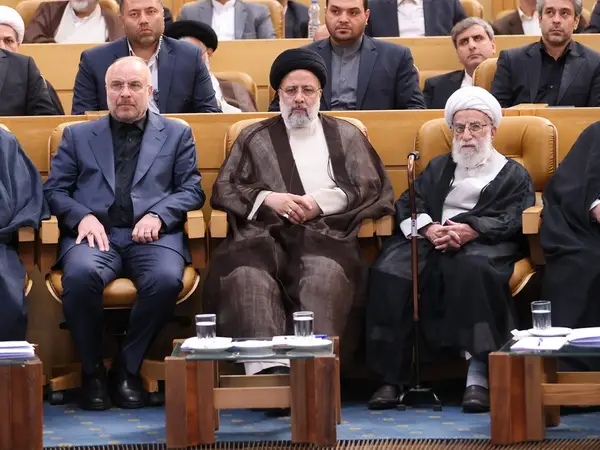A reformist daily in Iran says the Interior Ministry's push to restrict lawmakers' activity in their constituencies was a move to further "purify" the political landscape.
Etemad wrote Tuesday, June 27, that the move by the office of deputy interior minister for political affairs was intended to help the ultraconservative Paydari Party members by making electoral competition harder for other candidates in the March 2014 elections.
The daily described the move as an initiative to disqualify all the government's critics even before the vetting by the Guardian Council.
Etemad quoted Hossein Jalali, a member of Paydari Party, as saying that "the call made by Majles Speaker Mohammad Bagher Ghalibaf and some of the lawmakers to remove deputy interior minister Mohammad Reza Gholamreza from his post was a kind of blackmail." Jalali added that the hardliners should not surrender to the lawmakers' excessive demands.
Independent and neo-con lawmakers who support Ghalibaf tabled the impeachment motion and the government feared that the parliament was not going to give a vote of confidence to the new agriculture minister. In this way, the government could lose two of its ministers.
Jalali was referring to the motion tabled by some lawmakers to impeach the interior minister if he refused to remove his deputy from his post. More than 200 lawmakers tabled a motion last week to impeach the interior minister. This was a vehement threat, as calls for impeachment are usually signed by between 20 to 40 lawmakers. At the time, the minister promised to remove his deputy as soon as possible.
According to Etemad, Paydari Party members tried to conceal "a major decision" that has been made in and out of the parliament about the next parliamentary election. Earlier, former Majles Speaker Ali Larijani had called the project "purification.” Some Iranian politicians believe that purification is Supreme Leader Ali Khamenei's idea to consolidate hardliners power in Iran.
Paydari, however, did not expect such a reaction by the parliament as some lawmakers even demanded an answer from President Raisi about the purification plan. Although the interior minister immediately nullified his deputy's statement, according to Etemad, lawmakers are adamant that Paydari has started a gamble over the plan and is not likely to stop it easily.
For the government, it is certainly a meaningful defeat that 100 of those who have called for impeachment of Raisi's Interior Minister come from among the 200 members of the parliament who invited Raisi to run for president in 2021.
Other moves elsewhere in the government indicate that the purification plan is being carried out forcefully across the establishment. A report by Etemad on Tuesday revealed widespread resistance against the purification plan that has been under way at the Iranian state TV where Vahid Jalili, the deputy chief of the state TV and a Paydari figure who is the brother of prominent hardliner politician Saeed Jalili, appointed several Paydari members to key posts at the television ahead of the parliamentary elections. Among the critics are current and former managers of the state television, Etemad wrote.
As a result of the state TV's management by Paydari hardliners, the broadcaster which holds the monopoly of broadcasting, has lost millions of its viewers who are not interested in the Paydari's propaganda. Etemad even quoted Culture Minister Esmaili as saying that "The state TV is losing its status as the nation's point of reference for news and information." Others had warned about the decline in the state TV and the government's social capital since the start of the nationwide protests in 2022.
Former President Hassan Rouhani has also called for putting the state TV at the disposal of the nation for at least two to three years to boost its reputation.
